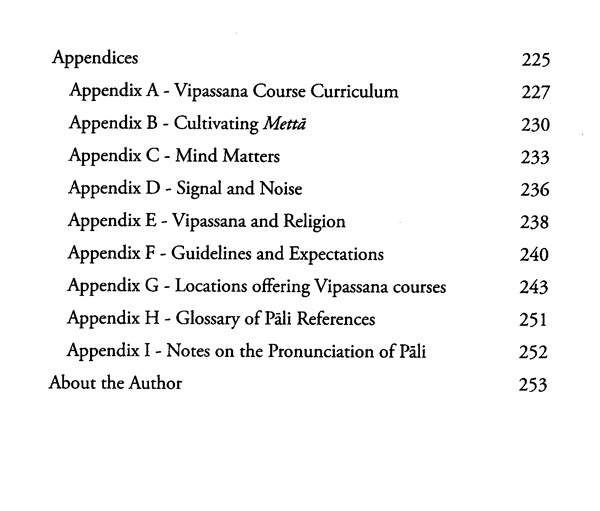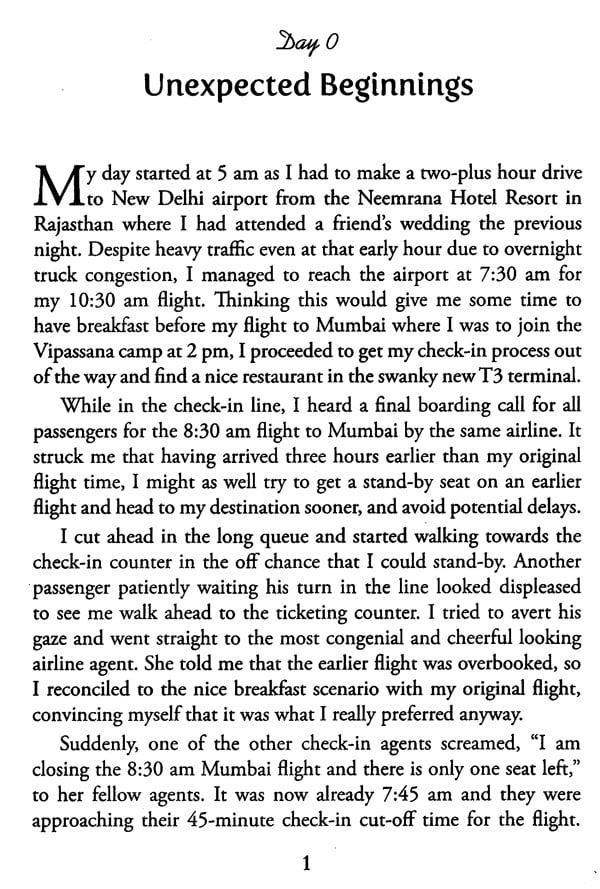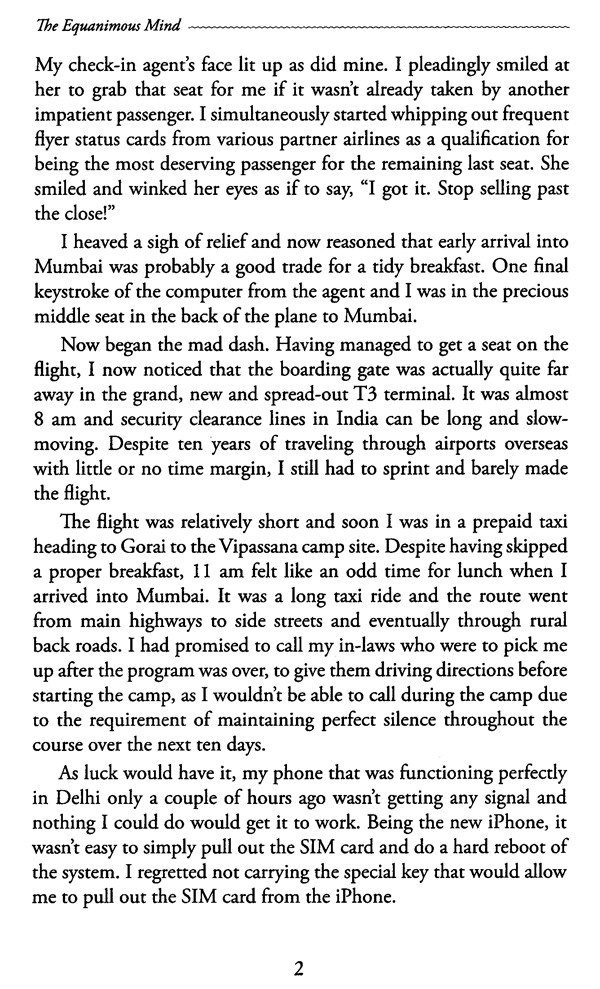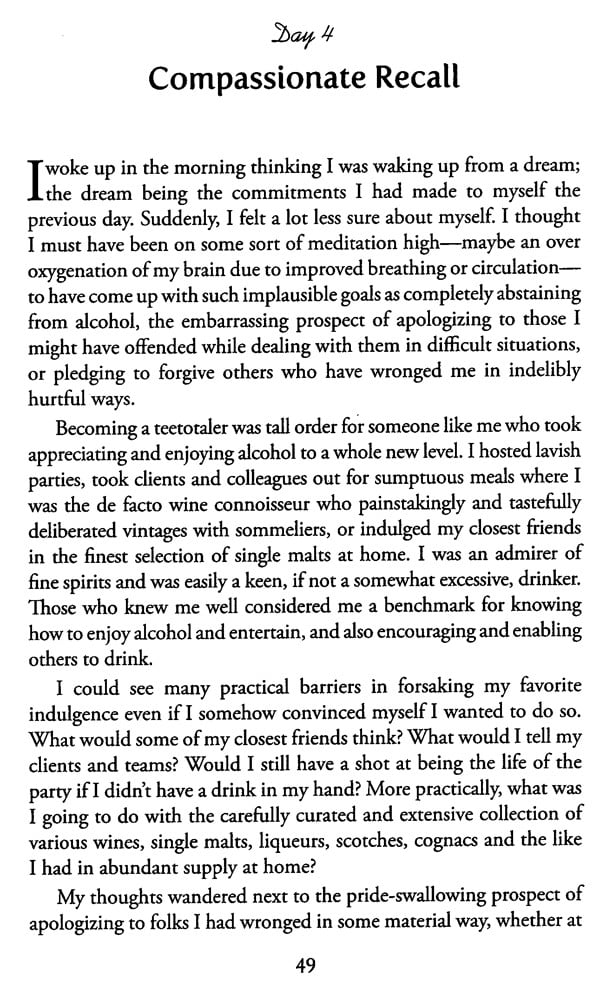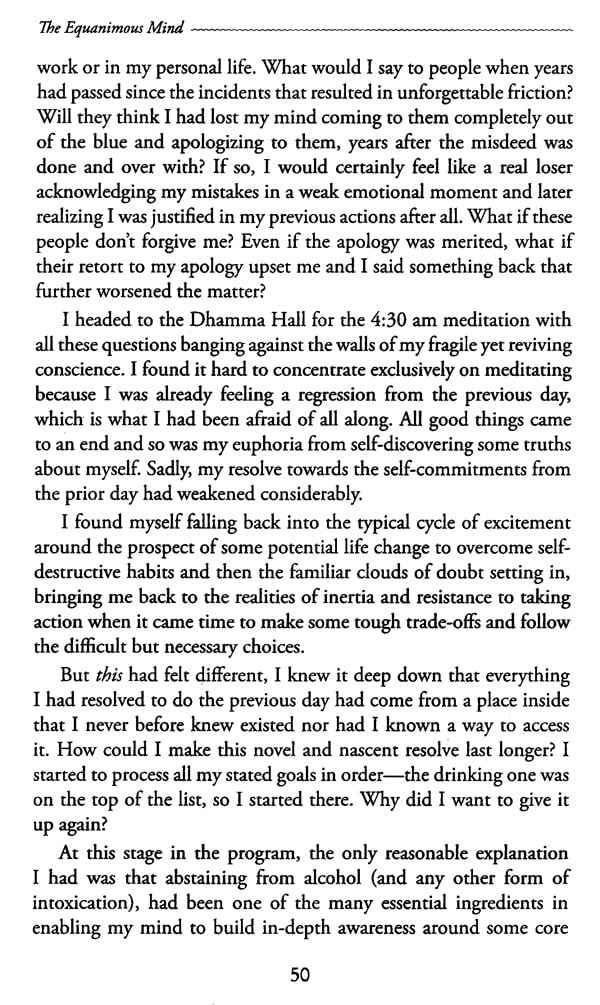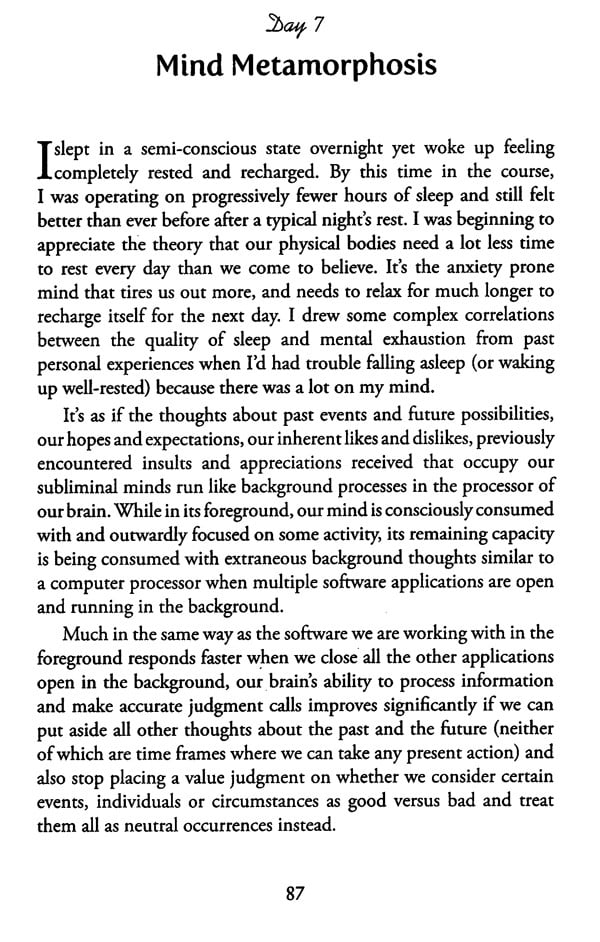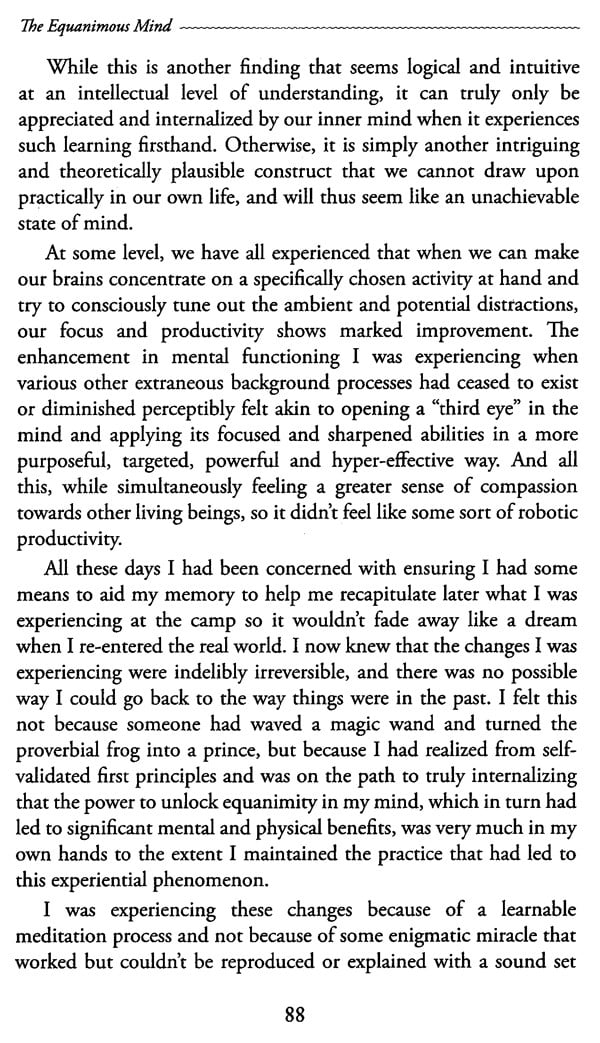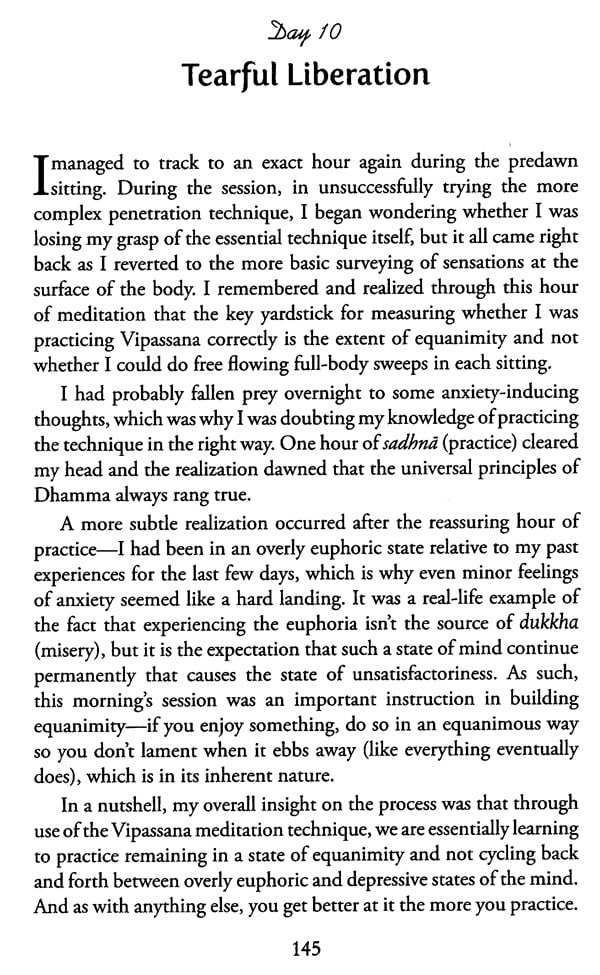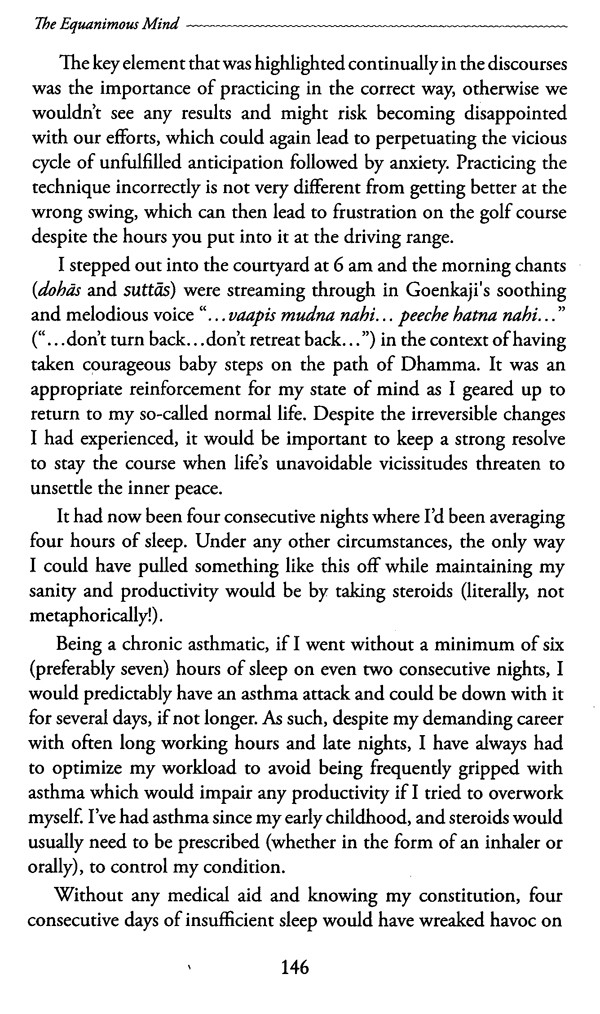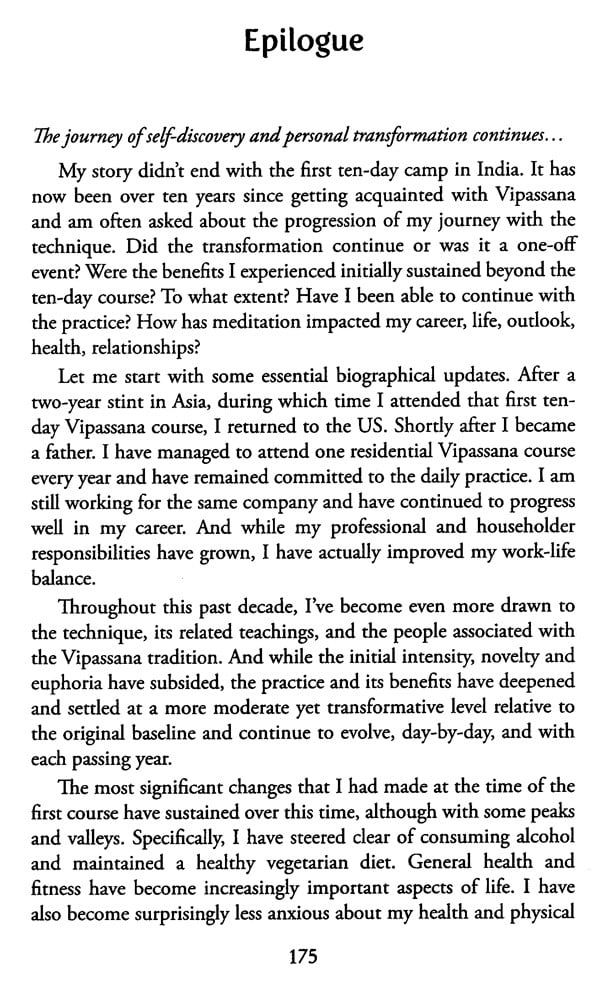
The Equanimous Mind (How a Ten-Day Meditation Boot Camp Unexpectedly Awakened Me to The Fundamentals of Life and Existence)
Book Specification
| Item Code: | UAB947 |
| Author: | Manish Chopra |
| Publisher: | ZEN PUBLICATION |
| Language: | English |
| Edition: | 2021 |
| ISBN: | 9788195269235 |
| Pages: | 253 |
| Cover: | PAPERBACK |
| Other Details | 8.50X5.50 inch |
| Weight | 280 gm |
Book Description
Believe there is a further shore reachable from here," the poet Seamus Heaney writes. This is a brave, generous, and thoroughly practical book! A modern man meets an ancient practice and discovers the currents to take him to his further shore. Get ready: As you are carried away on these pages, you may be tempted to dip into these waters yourself!
Robert Kegan, The Meehan Professor of Adult Development, Harvard University; co-author of Immunity to Change and An Everyone Culture The Equanimous Mind should come with a warning. Caution- This book could change your life.
Kenneth Roman, Former Chairman/CEO, Ogilvy and Mother Worldwide
THE EQUANIMOUS MIND is an autobiographical telling of one man's experience into the world of Vipassana (insight) meditation. Manish Chopra writes in an engaging way that gives the reader a peek behind the curtain of silent meditation retreats. It is great reading for anyone curious about the benefits of meditation.
Sharon Salzberg, insight meditation teacher and NYT best-selling author of Lovingkindness and Real Change
Manish Chopra's insightful book not only describes his personal journey through Vipassana meditation but opens up the path for all of us to practice mindfulness as leaders. Following his example on your own mindful journey will enable you to become a more authentic leader and lead a more fulfilling life.
Bill George, Harvard Business School senior fellow, former Medtronic CEO, and best-selling author of Discover Your True North
Not often does a person find something that dramatically changes their life for the better. This book describes how Vipassana practice that can do exactly that. Manish went into it hesitantly, as we all do with something outside of our comfort zone, and came out of it with techniques and thoughts that forever made him calmer, more introspective, more grateful, and more successful.
Mike Kaufmann, CEO of Cardinal Health (Fortune 20 company)
The Equanimous Mind is a book that will introduce Vipassana to people who may not have been familiar with it, and that will increase buy-in from many people who are already practicing it.
The book describes a ten-day Vipassana meditation course in the tradition of S. N. Goenka from the standpoint of someone encountering meditation for the first time. It contains a detailed, journal-like narrative of the rich and complex sequence of events that unrolls during the ten-day retreat that is devoted to learning this form of meditation. The strength of the book is the author's capacity to recall and sequence vivid details by the hundreds. Dr. Manish Chopra has a mind unusual for its precision. This gives the book the feeling of an experience rather than merely of a recounting. The reader feels as if he or she were right there, accompanying Manish in this breakthrough moment.
Autobiographical narratives of conversions are an old and established form of literature. Often this genre is referenced to the Confessions of Saint Augustine, a Roman intellectual who was highly skeptical of Christianity, but who described in his autobiography the reasons behind his conversion and the impact that it had. The story of a person leaping out of suffering into a more benighted state set the pattern for hundreds of books that have described character transformation through the embrace of a new way of living.
In the late 1890's, Harvard philosopher and psychologist William James, wrote his famous book, The Varieties of Religious Experience, in which he records and implicitly praises numerous accounts of personal transformation through religious or spiritual practices. Every story of this kind brings hope to those who read it. Saint Augustine's Confessions, and James' Varieties, are two books that never go out of print.
There has not been a book length account of the Vipassana experience until the first edition of The Equanimous Mind. The second edition has been amended for tone, veracity, and extended follow-up, and like its literary ancestors it conveys an exuberant and triumphant discovery. Dr. Chopra's narrative has the quality of an outpouring, an urgent need to tell. It contains intense, almost photographic memories that avoid analytical assessment of the experience, but that capture a ready, energetic, and flexible mind receiving a flood of new information. Chopra's writing is also poignant due to the self-critique he allows himself to express day-by-day across the ten-day experience.
William James said that all the numerous religions of the world can be described in one sentence: Something is wrong, and it can be set right by changing our relationship to some higher power. While William James is referring to religious conversions, Vipassana is both analogous and different because it is certainly a conversion but not a religious one. It is a conversion of lifestyle and of thought pattern as so amply exemplified in Dr. Chopra's transformation.
Manish Chopra steps forward with an act of daring confession, telling us in detail what was wrong with his life, and how, by learning Vipassana meditation, he reoriented every waking moment, and even some sleeping moments, to be in greater harmony with the power of Dhamma, the wisdom that is revealed by practicing the Buddha's teaching of Vipassana meditation.
If I hadn't known this ahead of time, I would probably have surmised that Dr. Manish Chopra has a PhD in engineering, because one of the most remarkable features of this book is the pinpoint description of how meditation is taught and practiced. The reader is treated to a kind of scientific journalism that heightens our awareness of a Vipassana course in a manner that is evocative of an engineer measuring the necessary details of every feature of the project he is observing.
Vipassana meditation touches down into the private and personal aspect of each practitioner's life, raising dark corners into the light, and elevating its practitioner's entire being. It takes a good deal of courage to write as revealingly as Dr. Chopra has done in this book, removing the description from generalities and abstractions, and bringing us much closer to the nitty-gritty details of what really goes on in the meditation of one particular person. The effect that Dr. Chopra conveys is truly inspiring.
Every meditator has a unique experience based upon the unreproducible idiosyncrasy that is the basis of every person's life. No one can imagine or expect that the experiences described in The Equanimous Mind will exactly mirror or predict their own experiences in Vipassana meditation. But this book gives us a sweeping picture of how widespread, practical, and valuable Vipassana meditation can be across a wide array of biological and psychological personality functions.
I got a kick out of the chart that the author provides in the Epilogue, in which he compares his pre-Vipassana baseline function to his post-Vipassana present day function across a set of variables that include his mind, body, speech, and behavior. Like the rest of this book, the chart combines the scientific attitudes of a PhD with the open-handed confessions of a husband, father, and son.
The Equanimous Mind has a particular heartwarming quality because of the earnestness with which the author seeks to grow into being the best possible person he can be. Many people will benefit from this volume of clear sentences, deep feelings, and important messages. The Equanimous Mind is written with an atmosphere of generosity in the attempt to convey experiential revelations. It is obviously intended to be a gift to other people.
**Contents and Sample Pages**

